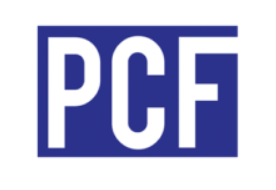Pivotal Cloud Foundry (PCF) is a cloud-native platform that enables organizations to build, deploy, and scale applications with ease. It abstracts away the complexities of infrastructure management and provides a streamlined development experience. PCF offers features like automated deployment, scalability, high availability, and integration with DevOps practices. It empowers teams to focus on application development, accelerates time-to-market, and facilitates efficient management of cloud-native applications.
Here are 50 benefits of using PCF:
- Simplified Deployment: PCF automates the deployment process, making it quick and hassle-free.
- Scalability: PCF allows for easy scaling of applications, accommodating varying workloads.
- High Availability: PCF ensures high availability with features like self-healing and automatic recovery.
- Multi-Cloud Support: PCF supports deployment across multiple cloud providers, offering flexibility and avoiding vendor lock-in.
- Containerization: PCF leverages containers to package and run applications consistently across different environments.
- DevOps Integration: PCF integrates seamlessly with DevOps processes, enabling faster development cycles and continuous delivery.
- Infrastructure Abstraction: PCF abstracts away infrastructure complexities, allowing developers to focus on application development.
- Microservices Architecture: PCF supports microservices-based architectures, enabling modular development and scalability.
- Auto-Scaling: PCF automatically scales applications based on predefined metrics, optimizing resource utilization.
- Fault Tolerance: PCF provides fault tolerance through load balancing and distributed architecture.
- Zero Downtime Deployment: PCF enables seamless updates and rollbacks without any downtime.
- Monitoring and Logging: PCF offers built-in monitoring and logging capabilities, aiding in application performance management.
- Security: PCF incorporates security features like role-based access control (RBAC) and secure communication protocols.
- Service Discovery: PCF provides service discovery and registry to facilitate communication between services.
- Database Services: PCF offers managed database services, reducing the overhead of database management.
- Integration with CI/CD Tools: PCF integrates well with popular CI/CD tools, enabling efficient continuous integration and deployment.
- Blue-Green Deployment: PCF supports blue-green deployment strategies, allowing seamless transitions between application versions.
- Self-Service Platform: PCF empowers developers with self-service capabilities to provision and manage applications.
- Automated Patching and Upgrades: PCF automates patching and upgrades, ensuring applications run on the latest versions.
- Immutable Infrastructure: PCF promotes immutable infrastructure patterns, minimizing configuration drift and enhancing reliability.
- Application Performance Management: PCF offers tools and integrations for monitoring and managing application performance.
- Disaster Recovery: PCF provides built-in disaster recovery features, enabling quick recovery in case of failures.
- Agile Development: PCF supports agile development methodologies, fostering rapid and iterative application development.
- Platform Portability: PCF allows applications to run consistently across different environments, simplifying portability.
- Resource Efficiency: PCF optimizes resource usage, ensuring efficient allocation and reducing costs.
- CI/CD Pipelines: PCF integrates with CI/CD pipelines, automating the application deployment process.
- Compliance and Auditing: PCF facilitates compliance with security and regulatory requirements, enabling auditing and reporting.
- Automated Rollbacks: PCF allows for automated rollbacks in case of application failures or issues.
- Version Control: PCF supports version control of applications and configurations, enabling easy rollback to previous versions.
- Application Health Monitoring: PCF provides health monitoring features to detect and address application issues proactively.
- Resource Autoscaling: PCF automatically adjusts resources based on application workload, optimizing resource allocation.
- Multi-Region Deployment: PCF supports deploying applications across multiple regions for improved availability and performance.
- Simplified Networking: PCF simplifies networking by providing automated routing and load balancing.
- Service Brokers: PCF integrates with service brokers, allowing easy consumption of external services like databases, messaging, and caching.
- Blueprints and Templates: PCF offers blueprints and templates for easy and consistent application deployment.
- A/B Testing: PCF enables A/B testing by facilitating the deployment of different versions of an application to compare performance and user experience.
- Hybrid Cloud Support: PCF supports hybrid cloud deployments, allowing applications to run seamlessly across both public and private cloud environments.
- Governance and Compliance: PCF provides features for governance and compliance management, ensuring adherence to organizational policies and standards.
- Developer Productivity: PCF enhances developer productivity by offering a streamlined development and deployment process.
- Continuous Integration: PCF integrates with CI tools, enabling automated testing and integration of application code.
- Centralized Control: PCF provides a centralized control plane for managing applications, resources, and configurations.
- Rapid Prototyping: PCF facilitates rapid prototyping and experimentation with its quick and automated deployment capabilities.
- Seamless Updates: PCF enables seamless updates of application components, minimizing disruption to end users.
- Resource Isolation: PCF ensures resource isolation between applications, preventing interference and optimizing performance.
- Automated Backups: PCF automates backups of application data, ensuring data integrity and recoverability.
- Disaster Recovery Testing: PCF supports disaster recovery testing, allowing organizations to validate their recovery processes.
- Self-Healing: PCF automatically detects and recovers from application failures, ensuring application availability.
- Resource Scheduling: PCF optimizes resource scheduling to efficiently allocate resources based on application requirements.
- Platform Extensibility: PCF allows for the extension of its functionality through the integration of custom-built or third-party services.
- Community and Ecosystem: PCF has a vibrant community and ecosystem, providing access to resources, best practices, and support.
These benefits highlight the value of using Pivotal Cloud Foundry (PCF) in projects, including improved deployment efficiency, scalability, fault tolerance, security, and seamless integration with modern development practices.

Leave a Reply